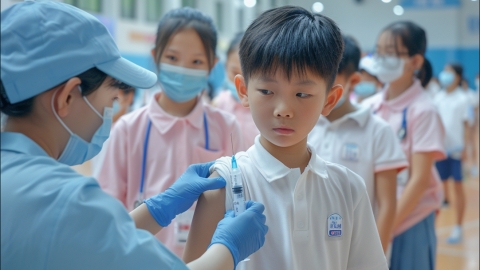Why should I avoid crowded places after receiving a flu vaccine?
Generally, after receiving the flu vaccine, it is advisable to avoid crowded places. The main reasons for this include the time required for the vaccine to take effect, high virus concentration in crowded areas, potential risk of virus transmission, susceptibility to cross-infection, and the possibility of worsening physical discomfort. A detailed explanation is as follows:
1. Time required for the vaccine to take effect
After receiving the flu vaccine, the body requires a period of time to initiate an immune response and produce sufficient protective antibodies. This process typically takes 2–4 weeks. During this time, before antibody levels reach a protective threshold, the body's resistance to the influenza virus does not immediately improve.
2. High virus concentration in crowded places
In crowded, relatively enclosed spaces such as shopping malls, subways, and movie theaters with poor air circulation, the influenza virus can easily spread among people. Even after vaccination, if the antibodies have not yet fully taken effect, the likelihood of exposure to a high concentration of the virus significantly increases, thereby raising the risk of infection.

3. Potential risk of virus transmission
A small number of individuals may already be in the incubation period of the influenza virus before vaccination, even though they have not yet developed noticeable symptoms. Going to crowded places at this time may result in becoming a virus carrier, transmitting it to others—particularly the elderly, children, pregnant women, and people with weakened immune systems—posing a threat to others' health.
4. Susceptibility to cross-infection
In addition to the influenza virus, crowded places may also harbor other pathogens such as bacteria and mycoplasma. Although the vaccine specifically targets the influenza virus, the immune system may be in a relatively active state while responding to the vaccine and producing antibodies. Exposure to other pathogens at this time increases the likelihood of cross-infection, potentially leading to other illnesses such as the common cold or pneumonia.
5. Avoid worsening physical discomfort
Some individuals may experience mild adverse reactions after receiving the flu vaccine, such as low-grade fever, fatigue, and muscle aches. These reactions are usually temporary and gradually subside after rest. However, the noisy and polluted air in crowded places can easily cause fatigue and chest tightness.
For the sake of your own and others' health, it is recommended to avoid crowded places after receiving the flu vaccine, especially during the first 2–4 weeks following vaccination. Additionally, it is important to practice personal protection measures such as wearing a mask and washing hands frequently to reduce the risk of infection and disease transmission.








